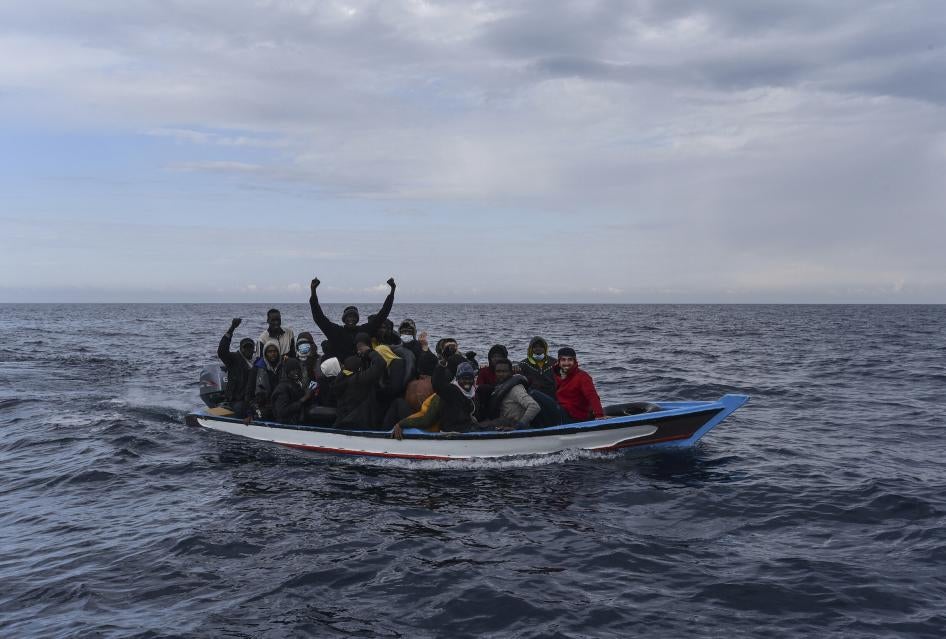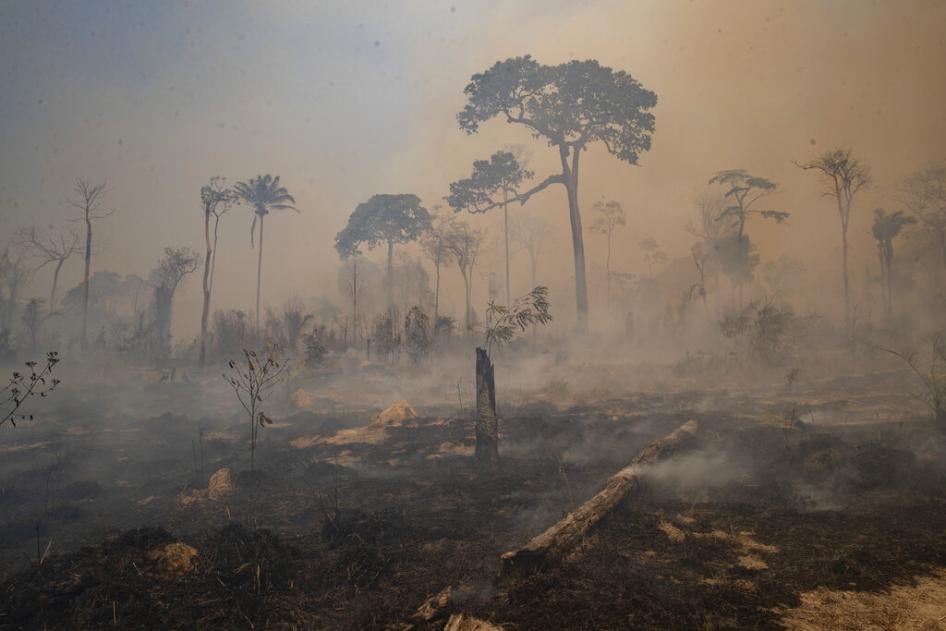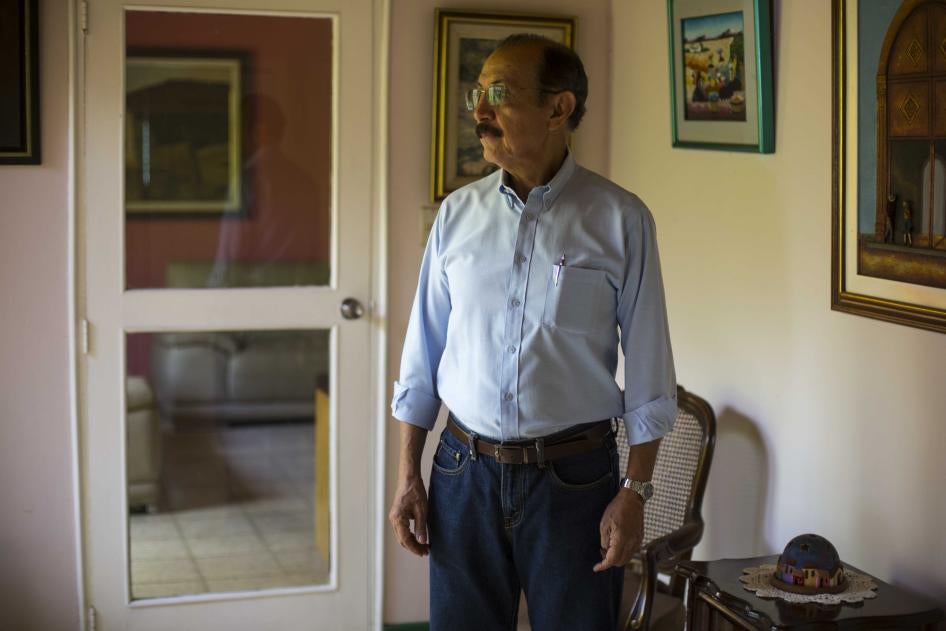Best of the Daily Brief
-
Special Note;
-
Europe’s “Let Children Die” Policy;
-
Burning in Amazon Accelerates;
-
Nicaragua’s Political Prisoners.
Help promote human rights – forward this email to others & encourage them to sign up here.
Special Note
Dear Readers,
I’m at a retreat again today, so I’m sending below a few stories from recent Daily Briefs that you may have missed.
I’ll be back next week.
Andrew
Europe’s “Let Children Die” Policy
(from September 14 Daily Brief)
Her name was Loujin. She was four years old. She died adrift at sea because of deliberate European policy.
Yes, deliberate. The European Union has thought about its approach towards people desperately trying to reach the safety of its Mediterranean shores. They have deliberated – discussed carefully at long length – and have opted for a policy of, as my colleague Jude Sunderland puts it, “deterrence by drowning and dehydration.”
Specifically, they’ve decided that EU ships should not actively patrol anywhere near where most boats fall into distress. They’ve decided that Frontex, the EU’s border and coast guard, conducts aerial surveillance in service of interceptions and returns, not rescues.
They’ve decided that four-year-old girls will die.
The hope of EU policy makers – if such twisted intentions can be called “hope” – is that their inhumanity will send a “tough signal” that stops people getting into the boats. As if innocent lives can be sacrificed to send a political message…
And it doesn’t work anyway. People are not deterred by the EU’s callous signaling. Driven by desperation, they keep coming – and keep dying.
More than 1,200 people have died in the Mediterranean Sea in 2022, adding to the almost unimaginable tally of nearly 25,000 deaths since 2014.
Syrian children have been among the latest victims. Last week, it was Loujin, who set off from Lebanon. This week saw three kids – ages 1, 2, and 12 – perishing on a journey from Turkey.
None of this has to happen. This is happening by choice. A policy choice.
In abdicating their responsibility to ensure search and rescue in the Mediterranean, EU policy makers are not ignorant fools. They’re educated people who know what they’re doing and who know the horrific consequences of their actions.
We don’t have to convince them that deaths like Loujin’s are happening because of their policy. Much more disturbingly, we have to convince them that it’s wrong.
Burning in Amazon Accelerates
(from September 16 Daily Brief)
The world’s largest rainforest is on fire, and this “burning season” is even worse than last year’s.
The first week of September 2022 saw more fires in the Brazilian Amazon than in the entire month of September 2021. Last month, the fires were the worst in a decade.
These are not natural fires. They are part of an intentional – and overwhelmingly illegal – deforestation process to permanently convert forest to pastureland.
Over the past four years, the Brazilian government has been assisting this criminality by weakening environmental law enforcement agencies, undermining their ability to effectively sanction environmental crime and detect exports of illegal timber.
Who benefits? Powerful multinational businesses that source their agricultural commodities from ranchers and loggers operating illegally.
Who loses? Local communities sickened by smoke and displaced from their land, with their land rights defenders often threatened and even murdered to shut them up.
Readers may ask: how can I help?
Brazilian beef, leather, and timber sourced from illegal operations in the Amazon are laundered and sold on the legal market, and exported around the world. Your first thought may be to try to avoid certain products.
That’s fine when possible, of course, but ending our participation in this destruction is not really so much a matter of the individual purchasing choices we make. This is a large-scale problem, and the solutions have to be large-scale, as well.
It’s more about policy decisions than personal decisions. We need to push our countries’ governments to adopt and rigorously implement legislation to restrict the import of agricultural commodities linked to deforestation and rights abuses.
In other words, our political action is needed more than our shopping carts.
Nicaragua’s Political Prisoners
(from September 16 Daily Brief)
A reader got in touch last week to highlight the dire situation in Nicaragua – a human rights disaster that has received that for years has received too little international attention.
The human rights record of the government of Daniel Ortega is appalling. Since 2018, when authorities brutally cracked down on protesters, the government has arbitrarily detained and prosecuted a range of people perceived as government critics, including journalists and political opponents. The authorities have dismantled civil society, and now, they’re even going after members of the Roman Catholic Church, shuttering their radio stations and arresting a bishop and his aides.
Our reader wanted to draw attention to the more than 200 political prisoners in Nicaragua. Brutal means of ill-treatment in detention are well documented, but even just the conditions many are kept in – being held incommunicado, prolonged solitary confinement, insufficient food, no access to medical care – are so appalling that they could in some cases constitute torture in and of themselves. Over 110,000 Nicaraguans have been forced to flee.
He mentioned in particular the cases of Juan Sebastián Chamorro and Félix Maradiaga, two of the seven presidential candidates detained in the context of 2021’s fraudulent elections. In March 2022, they were sentenced to 13 years in prison for, “conspiracy to undermine national integrity.” Now, I’m not a lawyer, but I’m pretty sure that means: “running for office against Ortega.”
One hopeful sign is that international attention seems to be increasing. On March 31, 2022, the UN Human Rights Council established a new monitoring body to investigate the country’s many violations.
On August 21, Pope Francis for the first time expressed concern about the situation in Nicaragua. And last week, the government of President Gustavo Petro in Colombia disclosed that they had been pressing privately for the release of political prisoners.
But the efforts have so far been insufficient. More needs to be done to keep the Ortega government in check.
____________________________________________________
Help promote human rights – forward this email to others & encourage them to sign up here.


